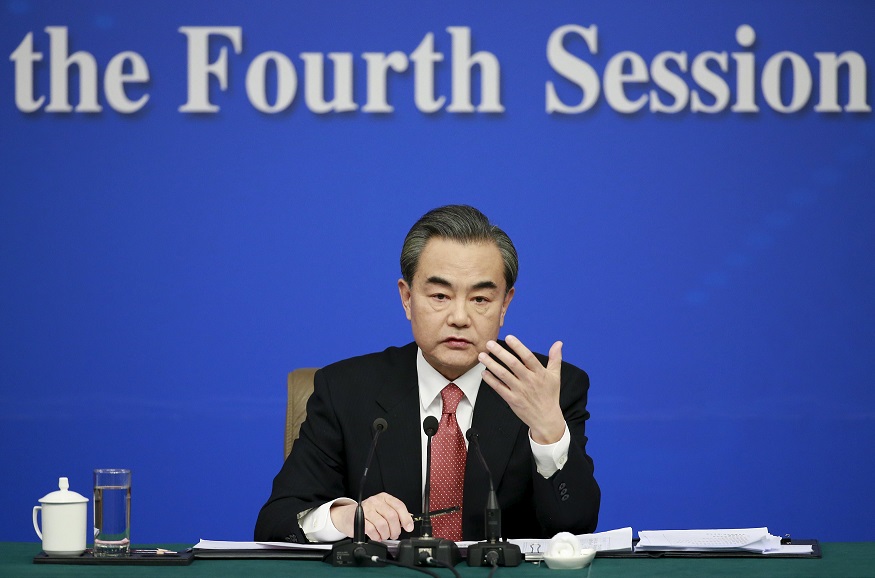China says South China Sea among world’s freest shipping lanes

BEIJING – Chinese
Foreign Minister Wang Yi says the South China Sea is one of the world’s freest
and safest shipping lanes, arguing that Beijing’s control over the disputed
waters was justified because it was the first to “discover” them.
China
has come under fire from the United States and its allies in recent months over
its land reclamation activities in the South China Sea, through which abound $A6.7
trillion in ship-borne trade passes annually.
The
United States Navy has carried out freedom of navigation exercises, sailing
near disputed islands to underscore its rights to operate in the seas.
Those
patrols, and reports that China is deploying advanced missiles, fighters and
radar equipment on islands there, have led Washington and Beijing to trade
accusations of militarising the region.
The freedom of navigation does not equal the “freedom to
run amok”, Wang told his yearly news conference on the sidelines of
China’s annual parliament meeting.
“In
fact, based on the joint efforts of China and other regional countries, the
South China Sea is currently one of the safest and freest shipping lanes in the
world,” Wang said.
“China
was the earliest to explore, name, develop and administer various South China
Sea islands. Our ancestors worked diligently here for generations,” Wang
said.
“History
will prove who is the visitor and who is the genuine host,” he said,
adding that China would “consider inviting” foreign journalists to
islands under its control when the conditions are right.
China
was neither the earliest country to deploy weapons to the South China Sea nor
the country with the most weapons there, Wang added, without saying which
country was.
Beijing claims almost all
of the South China Sea, but Brunei, Malaysia, the Philippines, Taiwan and Vietnam have
overlapping claims.
U.S.
Defense Secretary Ash Carter has warned of “specific consequences” if
China takes “aggressive” action in the region.
He
has said the U.S. military was increasing deployments to the Asia-Pacific
region and would spend more than $A572 million through 2020 to pay for more
exercises and training with countries in the region that were unnerved by
China’s actions.
Wang
was also asked about the Philippines case against China in an arbitration court
in The Hague on the South China Sea dispute. Manila has asked Beijing to
respect the decision, which is expected in May.
China
refuses to recognise the case and says all disputes should be resolved through
bilateral talks.
Wang
repeated that China was quite within its rights not to participate and accused
unnamed others of being behind the case.
“The Philippines’
stubbornness is clearly the result of behind-the-scene instigation and
political manipulation,” he said, without elaborating.

